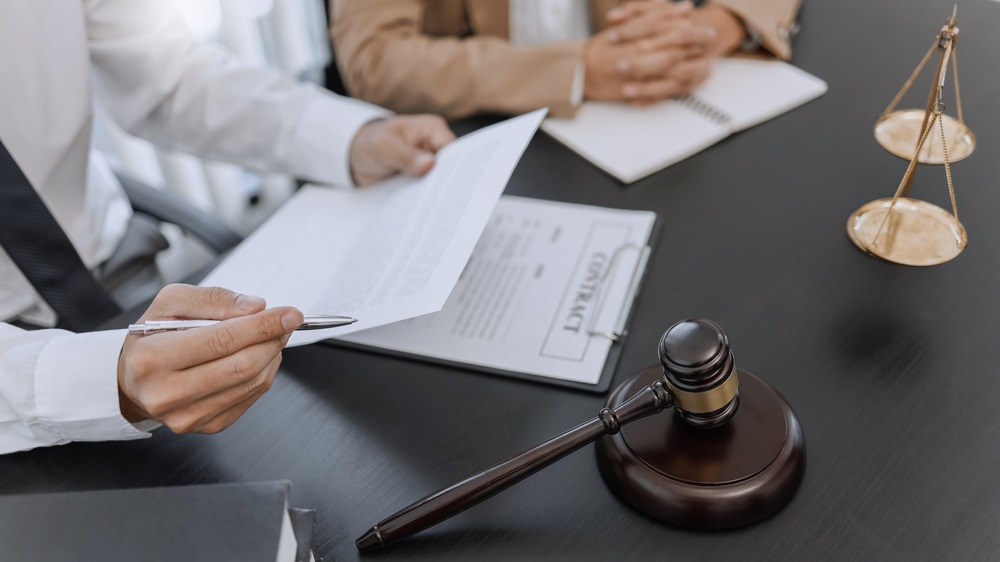Facing criminal charges in Michigan can be a bewildering and stressful experience. Understanding the legal system and finding the right defense attorney is crucial for ensuring your rights are protected and you receive a fair trial. This comprehensive guide will walk you through the intricacies of the Michigan legal system and provide practical tips for selecting criminal defense attorney Michigan who best suits your needs.
Understanding the Basics of Michigan’s Legal System
Michigan’s legal system operates under a complex network of laws and procedures. Familiarizing yourself with these basics can demystify the process and reduce anxiety.
Structure of Courts
Michigan has a hierarchical court system, starting with District Courts, which handle misdemeanors, and Circuit Courts, which deal with felonies. The Court of Appeals reviews cases from lower courts, while the Supreme Court is the highest legal authority in the state.
The Role of a Defense Attorney
A criminal defense attorney represents defendants facing criminal charges, providing legal advice, crafting defense strategies, and advocating on their behalf during court proceedings. Their expertise is indispensable in navigating complex legal waters.
Common Criminal Charges
Understanding common criminal charges in Michigan, such as DUI, drug offenses, and assault, can help you grasp the seriousness of your situation and the importance of securing capable legal representation.
The Importance of Early Legal Representation
Securing legal representation early in the process can significantly impact the outcome of your case.
Immediate Legal Advice
An attorney can provide immediate advice following an arrest, guiding you on what to say (or not say) to authorities and ensuring your rights are protected from the outset.
Pre-Trial Motions
An experienced lawyer can file pre-trial motions to suppress evidence or dismiss charges, potentially strengthening your case before it even reaches trial.
Emotional Support and Guidance
Facing criminal charges is emotionally taxing. A seasoned attorney not only provides legal expertise but also offers emotional support and guidance throughout the legal process, helping you stay grounded.
Key Qualities to Look for in a Criminal Defense Attorney
Choosing the right attorney can make all the difference in your case. Here are essential qualities to consider:
Experience and Expertise
Look for an attorney with extensive experience in criminal law, particularly in cases similar to yours. Their familiarity with local courts and legal nuances can provide a strategic advantage.
Strong Communication Skills
Effective communication is critical. Your attorney should be able to explain complex legal concepts in an understandable manner and keep you informed about your case’s progress.
Proven Track Record
Research the attorney’s past case outcomes. A proven track record of favorable results demonstrates their capability and reliability.
Conducting Research on Potential Attorneys
Thorough research is essential for making an informed decision.
Reading Reviews and Testimonials
Online reviews and client testimonials can offer valuable insights into an attorney’s reputation and client satisfaction. Look for consistent positive feedback regarding their professionalism, competence, and results.
Evaluating Credentials and Associations
Check the attorney’s credentials, including their education, bar association membership, and any professional awards or recognitions. Membership in reputable legal associations reflects a commitment to ongoing education and ethical standards.
Consultation Process
Many attorneys offer free initial consultations. Use this opportunity to assess their approach, gauge your comfort level, and determine if they are a good fit for your case.
Questions to Ask During Consultations
Prepare a list of questions to ask potential attorneys during consultations to ensure they meet your needs.
Case Experience
Inquire about their experience with cases similar to yours. Specific experience can be a decisive factor in their ability to handle your case effectively.
Legal Strategy
Ask about their proposed strategy for your defense. Understanding their approach can help you gauge their expertise and alignment with your expectations.
Fees and Costs
Clarify their fee structure and any additional costs you may incur. Transparent communication about finances can prevent misunderstandings later on.
The Role of a Defense Attorney in Court
Understanding your attorney’s role in court can help you appreciate their value and contribution to your case.
Plea Bargaining
Your attorney can negotiate plea bargains, potentially reducing charges or securing a more lenient sentence, depending on the circumstances of your case.
Trial Representation
During the trial, your attorney will present evidence, cross-examine witnesses, and make compelling arguments on your behalf to build a robust defense.
Sentencing Advocacy
If convicted, your attorney will advocate for a fair sentence, emphasizing mitigating factors and arguing for leniency wherever possible.
Building a Strong Attorney-Client Relationship
A strong relationship with your attorney can enhance the defense process.
Trust and Confidentiality
Trust is fundamental. Ensure open and honest communication with your attorney, knowing that confidentiality is maintained.
Active Participation
Participate actively in your defense by providing all necessary information and following your attorney’s advice diligently. Your cooperation is crucial for a successful outcome.
Regular Updates
Stay informed about your case’s progress. Regular updates from your attorney can alleviate anxiety and keep you engaged in the process.
Understanding Legal Terms and Jargon
Legal jargon can be confusing. Familiarize yourself with common terms used in criminal cases to better understand your situation and communications with your attorney.
Common Legal Terms
Terms like arraignment, plea bargain, and motion to suppress are frequently used in criminal cases. Knowing their meanings can demystify proceedings.
Legal Documents
Understanding documents like indictments, subpoenas, and warrants can help you stay informed and prepared throughout the legal process.
Court Procedures
Learn about court procedures such as hearings, trials, and appeals. This knowledge can boost your confidence and preparedness during legal proceedings.
Preparing for Court Appearances
Preparation is key to presenting yourself favorably in court.
Dress Code and Etiquette
Follow appropriate dress codes and courtroom etiquette. Professional appearance and behavior reflect respect for the legal process.
Practice Testimonies
Practice giving testimony with your attorney. This rehearsal can help you communicate clearly and confidently during court proceedings.
Staying Composed
Court appearances can be nerve-wracking. Stay composed, listen carefully, and follow your attorney’s guidance to ensure a smooth experience.
Post-Trial Support and Next Steps
Even after the trial, your attorney’s support remains crucial.
Appeals Process
If the outcome is unfavorable, your attorney can guide you through the appeals process, exploring options for challenging the verdict.
Record Expungement
Under certain conditions, your attorney can assist in expunging your criminal record, offering a fresh start.
Ongoing Legal Advice
Maintain communication with your attorney for ongoing legal advice and support as needed, ensuring you have a trusted resource for future legal matters.
Conclusion
Choosing the right criminal defense attorney in Michigan is a critical step in navigating the legal system effectively. By understanding the basics of the legal process, conducting thorough research, and building a strong relationship with your attorney, you can enhance your defense and work towards a favorable outcome. Remember, the right legal representation is not just about expertise but also about finding someone who genuinely cares about your case and is committed to fighting for your rights.

